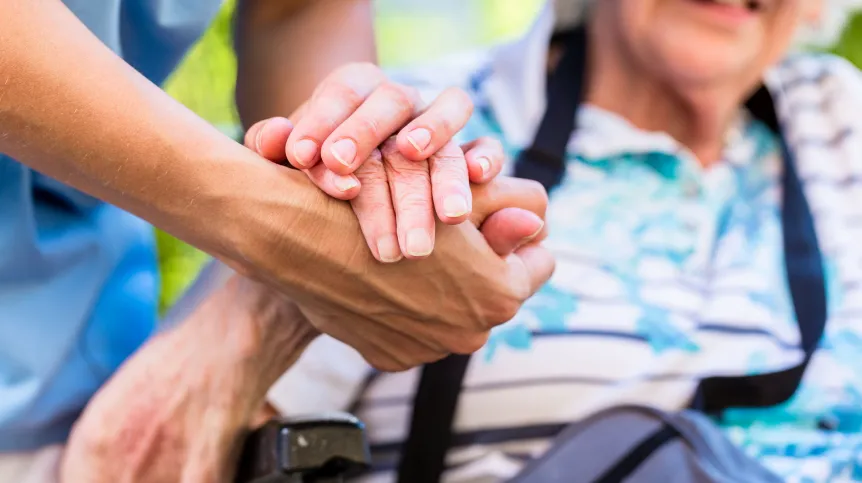
Every 10th person in Poland has mobility problems. In everyday life, they can be assisted by companion robots that will do shopping or administer medications. Now, scientists from Poland in collaboration with several foreign research centres, are working on a project concerning satellite navigation for a companion robot, which in the future may improve the quality of life of people with limited mobility.
Dr. Marek Piotrowski from the Faculty of Economic Sciences of the University of Warmia and Mazury in Olsztyn told PAP that the project concerning navigation for a companion robot in social service started last year. It is financed by the ‘Science for Society' program of the Ministry of Education and Science.
Dr. Piotrowski said: “The project is interdisciplinary. Firstly, it concerns satellite navigation as the target navigation for a companion robot, and secondly - issues related to the diagnosis of factors affecting the quality of life of people with limited mobility. It is also a diagnosis of social awareness of companion robots: for example, it the functions they may perform in the future.”
Technical tasks related to the attempt to use satellite navigation began at the end of 2022.
Piotrowski added: “Professor Paweł Wielgosz's team plays a key role in the current research. Over the course of several months, they managed to get closer to the assumed goals, mainly related to the study of the impact of the ionosphere on the quality of the satellite signal.”
However, the main thread for the research team in the project so far has been socio-economic research conducted over the last 11 months.
Piotrowski said: “First, we wanted to know the needs and barriers of people with limited mobility, the scale of this phenomenon, the percentage of these people who work, their professional and financial situation.”
Preliminary results of research conducted on a sample of over 2,000 people show that approx. 11 percent of respondents declare some extent of limited mobility. More than half of them do not have a certificate of disability.
The researchers also asked about the most important forms of support expected by the respondents, including co-financing of various types of devices, as well as broadly understood medical care and psychological care.
Piotrowski said: “We are aware that in the recent years of the coronavirus pandemic, these needs are urgent. We also asked how the respondents felt in society, what family contacts they had, that is, what - in addition to the financial situation - affected their quality of life.”
A third of the respondents described their financial situation as difficult. They pointed out that 'it was enough pay their bills, buy food and clothes", i.e. the basic minimum expenses.
Respondents indicated the basic barriers, not only in terms of infrastructure, but also those related to access to information, technological solutions related to the operation of devices or equipment.
Piotrowski continued: “Issues regarding housing needs and equipping flats with specific devices will be detailed in the research report that is currently being prepared. It will also include recommendations for state authorities and non-profit organisations.”
The researchers also investigated public awareness of the current and future role of companion robots. “Generally, every 10th respondent declared that they had seen a device that he considered a companion's robot somewhere, for example on television, on the Internet, which confirms one of the assumptions that it is necessary to familiarize the society with this type of devices and stimulate this level of knowledge.” - Piotrowski said.
He added: “Respondents are aware of the rapid technological development. It was surprising that the most frequently given answer to the question +how many years will pass before companion robots will be commonplace+, given by about 20 percent of respondents, was only 10 years.”
The companion robot, with which scientists from the University of Warmia and Mazury and the Warsaw University of Technology work, is a four-legged robot from Boston Dynamics. It is controlled remotely (with a tablet), or it uses cameras to read codes placed in its working area.
The scientists are working on the target control of the companion robot with the help of satellite navigation. Having such an option would allow them to send the robot out into an open space, for example to a store or pharmacy. The condition is that the satellite signal must be precise enough for the robot to carry out its missions flawlessly.
Currently, errors resulting from insufficient accuracy are at the level of 1 to 1.5 meters, which is too large to talk about the companion robot's effectiveness in open space. Research related to the reduction of these errors is underway. (PAP)
PAP - Science in Poland, Agnieszka Libudzka
ali/ bar/ kap/
tr. RL













